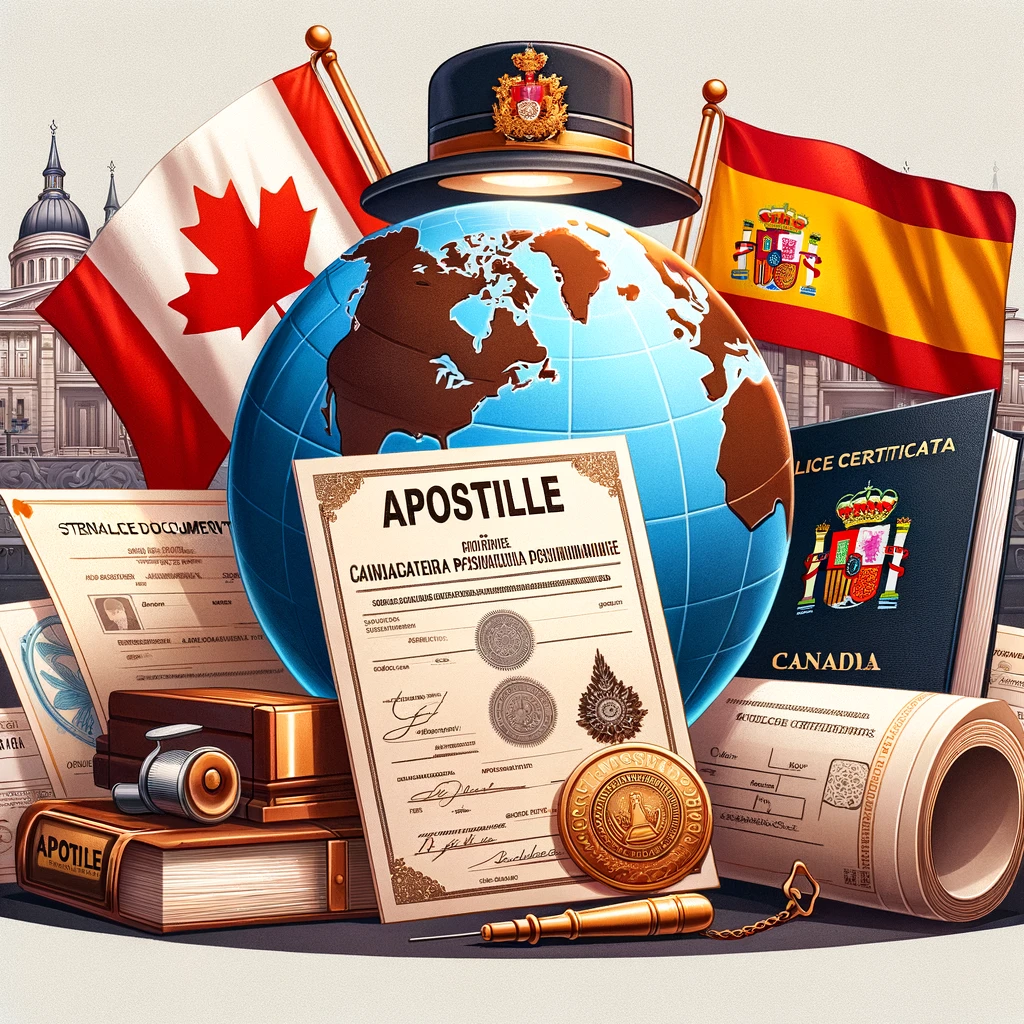Streamlined Apostille Process for Canadians Heading to Spain: A Comprehensive Guide
As of January 11, 2024, Canada's accession to the Hague Apostille Convention has significantly streamlined the process for Canadians needing to use their official documents in Spain. Now, an Apostille is all that's required to ensure your Canadian documents are recognized in Spain, simplifying the journey for those planning to work, study, or reside there. This article delves into the types of documents you'll need an Apostille for and the reasons behind this necessity.
Understanding the Apostille Process
The Apostille process, which replaces the previous, more cumbersome method of authentication and legalization, is a standardized certification method that verifies the authenticity of documents. Necessary for a range of official documents - including birth certificates, marriage certificates, educational degrees, and RCMP police clearance certificates - the Apostille ensures these documents are accepted as valid in member countries of the Hague Convention, such as Spain.
Navigating the Apostille Process: A Step-by-Step Guide
Step 1: Document Preparation- Ensure your document is in the correct format and contains all necessary details. Some documents, like notarized statements, may require additional steps.
Step 2: Obtaining an Apostille- Submit your document to the appropriate Canadian authority, such as Global Affairs Canada or a provincial competent authority, for the Apostille. This involves verifying the document's authenticity and affixing the Apostille certificate.
Step 3: Translation (If Required)- If your document is not in Spanish, it should be translated by a certified translator recognized by Spain.
Frequently Asked Questions about the Apostille Process
- Duration: The time required for obtaining an Apostille varies, typically taking a few days to several weeks. Planning ahead is crucial to avoid unexpected delays.
- Cost: Fees for the Apostille process depend on the document type and the number of documents. Additional costs may arise from notarization or translation services.
- DIY Possibility: While individuals can undertake the Apostille process themselves, it can be complex. Professional apostille services are recommended for efficiency and accuracy.
- Document Validity: Apostilled documents are generally valid for six months from the date of issue. However, it's advisable to verify specific requirements with Spanish authorities.
Conclusion: Simplifying Your Journey with Expert Assistance
The transition to the Apostille system for Canadian documents required in Spain marks a significant simplification. By adhering to this guide and considering professional services, Canadians can ensure their documents are promptly and accurately recognized in Spain, facilitating a smoother transition for work, study, or residence. Always stay updated with the latest requirements and timelines to ensure a seamless experience.


